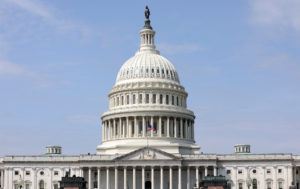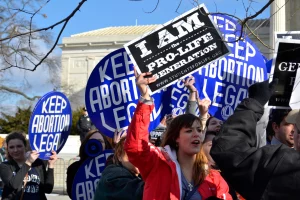
 The United States Supreme Court will hear oral arguments in the case of Dobbs v. Jackson Women’s Health on Wednesday (Dec. 1). The case centers around whether a 2018 Mississippi law that bans abortions in the state beyond 15 weeks is constitutional.
The United States Supreme Court will hear oral arguments in the case of Dobbs v. Jackson Women’s Health on Wednesday (Dec. 1). The case centers around whether a 2018 Mississippi law that bans abortions in the state beyond 15 weeks is constitutional.
Some legal analysts feel this case raises questions that may find a sympathetic audience with the current court. It could result in an outcome like creating a new way to look at the fetal viability standard established by Planned Parenthood v. Casey or overturning the previous decisions in Casey and Roe v. Wade altogether.
So what does all this mean for pre-born children and those of us who seek to protect them?
First and foremost, while overturning Roe and Casey are essential steps in protecting the lives of the unborn, we must understand that overturning them doesn’t criminalize abortion overnight. It would simply remove federal limitations established by Roe and Casey on how far states can go in restricting abortion.
Overturning Roe does not signal an end to the fight to protect vulnerable children in the womb. It simply changes the venues and strategies.
In states where pro-life lawmakers hold majorities in the legislature, we could see a rapid impact. Pro-life majorities could pass laws to end abortion in those states quickly. It may also provide states which have previously passed “heartbeat bills” the tools needed to win the ongoing legal challenges which have effectively frozen those laws since passage.
But there’s another concern: In the Roe/Casey era, some state lawmakers have been willing to pass abortion restrictions (like those heartbeat bills), knowing the laws would likely never take effect. They scored political points with pro-life constituencies while avoiding the full ire of pro-abortion lobbies in their states. Now that the decisions of state legislatures could carry a great deal more power and political risk/benefit, it may become harder to make “yes” votes on pro-life bills hold firm under increased political pressure from abortion rights groups.
In other words, we will learn who is pro-life because it’s politically easy and who is genuinely pro-life.
In states where pro-choice legislators hold the majority, overturning Roe or Casey could ironically broaden abortion access. They may see themselves as safe harbors for women from pro-life states who seek abortions. In these states (in political parlance, we would call them “purple” or “blue” states), pro-life advocates will have an even greater mountain to climb to change the minds of the lawmakers – or to elect more lawmakers who are pro-life.
In any case, it will be incumbent on those of us who value a culture of life to remain engaged in the discussion, bringing our influence to bear in the states where we live. If the power to make laws with such massive implications for the unborn rests in our state capitals, we must make our presence known there more than ever before.
And what of pro-life Christians in those purple and blue states? What can you do in places where passing laws to stop abortion seems out of reach for now? In these cases, we must double down on the strategies for saving lives that have served us well nationally during the era of Roe. We must work even harder to establish the presence of Christian crisis pregnancy centers so that abortion-vulnerable women can learn about the other options they have, experience the love of Christ, and hear the life-changing Gospel.
In states where lawmakers may entirely ban abortion, Christians must serve women in crisis who will now carry and deliver children they might have once aborted. We must do all that we can to care for the vulnerable as Christ did. Whether through non-profit and private efforts or through crafting better public policy to help women and children in need, we will be needed more than ever. Recognizing these needs and acting with compassion is the essence of what it means to be genuinely pro-life rather than merely pro-birth.
As we await the court’s decision on this crucial case, we should dedicate ourselves to prayer for all involved. We must pray for the justices who will hear the arguments and have the power to decide, and we must pray for the lawyers who will argue before them. Ultimately, it will be the grace of God that brings about a change in our culture that would have Americans view life as he views it: sacred at every age and stage.
Dana Hall McCain is a columnist for Alabama Media Group, writing on faith, culture, and public policy. She is a member of First Baptist Church of Dothan, Alabama, and served on the Resolutions Committee for the 2021 SBC Annual Meeting.
















